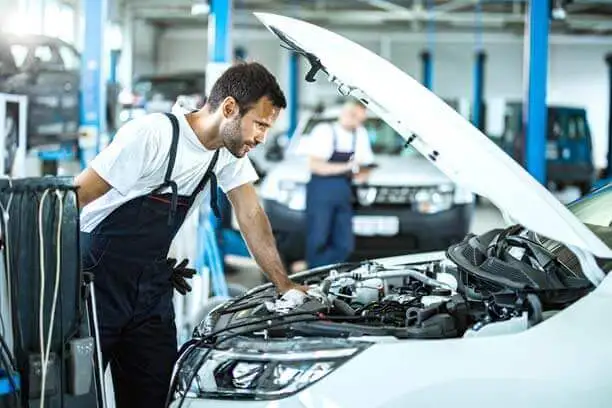All Categories
Featured
When your vehicle experiences a major malfunction, the cost of fixings can be a challenging economic consideration. Whether it's the failing of an essential system like the engine or transmission, or the requirement for comprehensive fixings to different elements, understanding the variables that influence repair work prices can help you make even more informed choices. Below, we detail the essential factors that contribute to the cost of significant automobile repair services.
![]()
![]()
![]()
Verdict. Numerous factors affect the cost of significant cars and truck fixings, including the type of fixing, the make and design of your car, the top quality of the components utilized, labor costs, and the degree of the damage. Understanding these variables can help you make more enlightened decisions and strategy for the economic effects of vehicle fixings. To lessen the probability of costly repair services, normal upkeep is essential. By remaining on top of regular upkeep and resolving small concerns before they intensify, you can lower the chances of dealing with pricey repair services in the future.

- Kind of Repair service. The primary factor affecting the price of vehicle repair services is the type of problem your car is experiencing. Specific systems in a car, like the engine or transmission, require more time to repair and diagnose, which straight translates into greater labor fees.
- Lorry Make and Model. The make and design of your car plays a major role in determining repair prices. Deluxe cars and trucks and high-performance vehicles like BMWs, Audis, or Mercedes-Benz have a tendency to have greater repair service expenses due to the fact that of their specialized parts, advanced innovation, and the knowledge required for their repair service.

- Components Top Quality and Schedule. The top quality of the parts made use of in the fixing significantly affects the cost. In some situations, less costly aftermarket components could lower the total repair service price, yet they may not provide the same durability as OEM components, which might result in extra repairs down the roadway. If parts are difficult to locate, it may take longer to finish the repair work, leading to higher labor prices.
- Labor Costs. When it comes to car repair work, labor is one of the largest costs. Technicians typically charge by the hour, and repair service times can differ depending on the intricacy of the concern. Some repairs, such as engine overhauls or transmission solutions, might call for several hours and even days of labor, dramatically raising the total cost. Labor rates additionally depend upon the area of the service center-- mechanics in metropolitan areas or high-demand locations may bill greater prices due to the cost of living and overhead. Furthermore, specialized fixings for complex systems might call for more seasoned professionals, whose hourly prices often tend to be higher.
- Degree of the Damages. The degree of the damages is another crucial aspect affecting repair work expenses. If the damages is confined to one part of the car, such as a busted alternator or malfunctioning brake pads, the repair work will typically be less costly.
- Vehicle Age and Condition. The age and total problem of your car play a substantial function in the price of repair services. Properly maintained lorries tend to have reduced repair costs because their systems are in better working problem, needing less and less pricey repair work.
- Shop Place and Track Record. The service center you select can also influence the price of your repairs. Shops located in metropolitan or high-cost areas have a tendency to charge greater prices for labor and components. Furthermore, service center that focus on certain brands or types of repairs might bill much more for their experience. While it's appealing to choose the least expensive store, in some cases paying a little bit much more for a trusted shop can cause better high quality work, less mistakes, and less threat of requiring further repairs. It's constantly a great idea to check testimonials and ask for recommendations prior to picking a service center.

- Warranty and Insurance Insurance Coverage. If your car is still under guarantee, major fixings might be covered, which can considerably reduce your out-of-pocket costs. Furthermore, if the damages is caused by a crash or outside aspect, your automobile insurance policy may cover the repair service costs, less any type of deductible.
Verdict. Numerous factors affect the cost of significant cars and truck fixings, including the type of fixing, the make and design of your car, the top quality of the components utilized, labor costs, and the degree of the damage. Understanding these variables can help you make more enlightened decisions and strategy for the economic effects of vehicle fixings. To lessen the probability of costly repair services, normal upkeep is essential. By remaining on top of regular upkeep and resolving small concerns before they intensify, you can lower the chances of dealing with pricey repair services in the future.
Latest Posts
Experience the Boogaloo: Dining, Drinks, & Sports at FunCity Resort
Published Feb 06, 25
2 min read
The Advantages of Custom-made Furnishings: Why It's Worth the Investment
Published Jan 17, 25
0 min read
Exactly How Can Clients Tailor Furnishings to Suit Their Home Decoration?
Published Jan 10, 25
0 min read
More
Latest Posts
Experience the Boogaloo: Dining, Drinks, & Sports at FunCity Resort
Published Feb 06, 25
2 min read
The Advantages of Custom-made Furnishings: Why It's Worth the Investment
Published Jan 17, 25
0 min read
Exactly How Can Clients Tailor Furnishings to Suit Their Home Decoration?
Published Jan 10, 25
0 min read